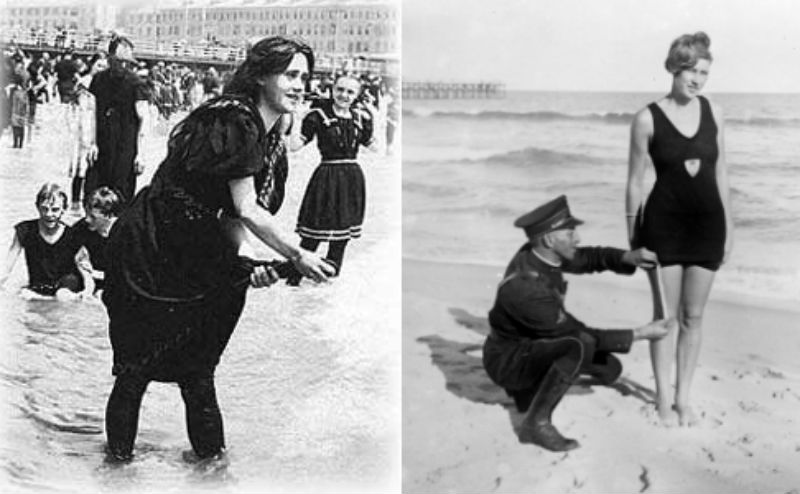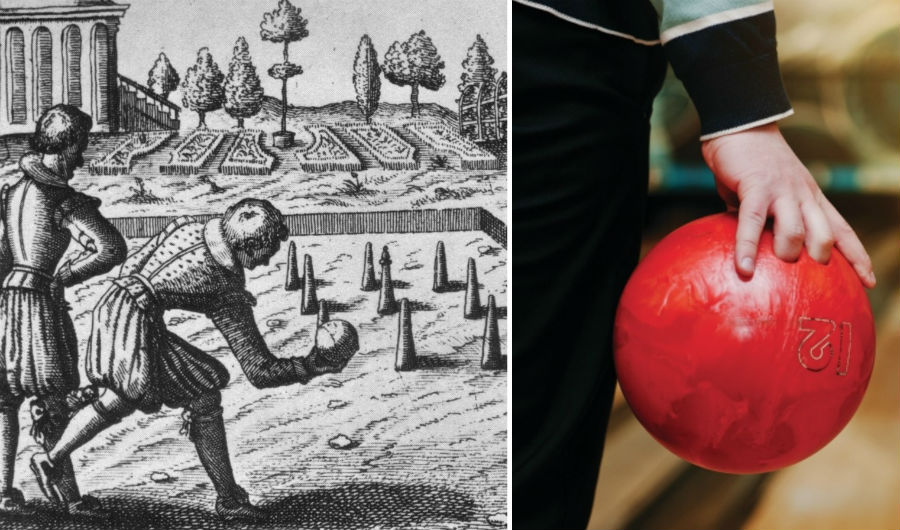This world has no shortage of things we take for granted. Money can buy pretty much everything in today’s world, so we rarely take into consideration that some of the things we do or use every day were once not that common – or even illegal!
Let’s take a look at some things that we consider to be commonplace but were banned at some point in the past.
Swimwear
By a “swimwear ban”, I don’t mean that people had to swim naked. In the early 20th century our swimwear became a lot more revealing and tighter, which caused huge moral uproar. Considering how the 19th century swimwear covered almost the entire body, you can imagine it was quite a shock to see so many knees and elbows with no fabric over them. Laws were passed to set a minimum length for swimwear, even banning one-piece bathing suits outright in some cities. It was only in the 1930s that women wearing shorter swimwear were finally tolerated by governments.

Bowling
Bowling was banned in the UK for a total of three times. Once by King Edward III in 1366, once by King Edward IV in 1477 and once by King Henry VIII. The reason, amazingly, was always exactly the same: playing bowling was distracting people too much from practicing their archery skills. Considering how many wars the Brits were in, I’d say they had more use for skilled archers than bowlers that throw a consistent 250 point game.

Christmas
The Grinch might have stolen Christmas, but the Puritans banned it in 1644! They considered all holidays as sin and even demanded that businesses stay open on Christmas to make sure no one was celebrating in secret. They didn’t just ban the holiday itself, but also all decorations – which is probably the best thing about Christmas to begin with. The ban lasted until 1660 in regular England, and until 1681 in New England.

Popcorn
During the silent film era, when movies were considered entertainment for the upper class, popcorn was banned outright from movie theaters to prevent it from ruining the rugs in the building. This popcorn ban lasted until the Great Depression, when movies were made accessible to the lower classes as well. Popcorn was one of the cheapest foods money could buy, so it was one of the only foods you could sell at a movie theater and make a profit.

Chess
Chess has been banned at some point in time in many places around the world, and it’s even banned in Saudi Arabia until this day! Their reasoning for the ban is that it’s “a time-waster”. The Taliban regime of Afghanistan banned chess in 2001 because it made people miss prayers and encouraged gambling. It has also been banned in Persia, Egypt, Japan and even France for being “useless and boring”. As you can see, these amazing excuses for banning chess seem to point to an underlying religious motivation: all countries that banned it were very religious at the time that chess was considered “useless”, probably because it’s a game of strategy where no higher power in the world can save you if your opponent is clearly better.

Football
A world without football is a sad world indeed. The English kings Edward II, Edward III, Richard II, Henry IV and Henry V all banned football at some point during their reigns. As was the case with bowling, the main reason – officially – was that it prevented people from spending time on their archery skills. The real reason appears to be that football was a sport of the common folk with no money or aristocracy involved in it. Oh how the times have changed, haven’t they?

Coffee Shops
And another weird English ban, King Charles II banned coffee shops (and the sale of coffee entirely) because coffee shops were essentially the equivalent of a bar in today’s day and age. Charles wasn’t the most trusty fellow and he feared that people might plan a rebellion in a coffee shop. Considering how London alone had about 3000 coffee shops, he was probably not as wrong as you’d think.

